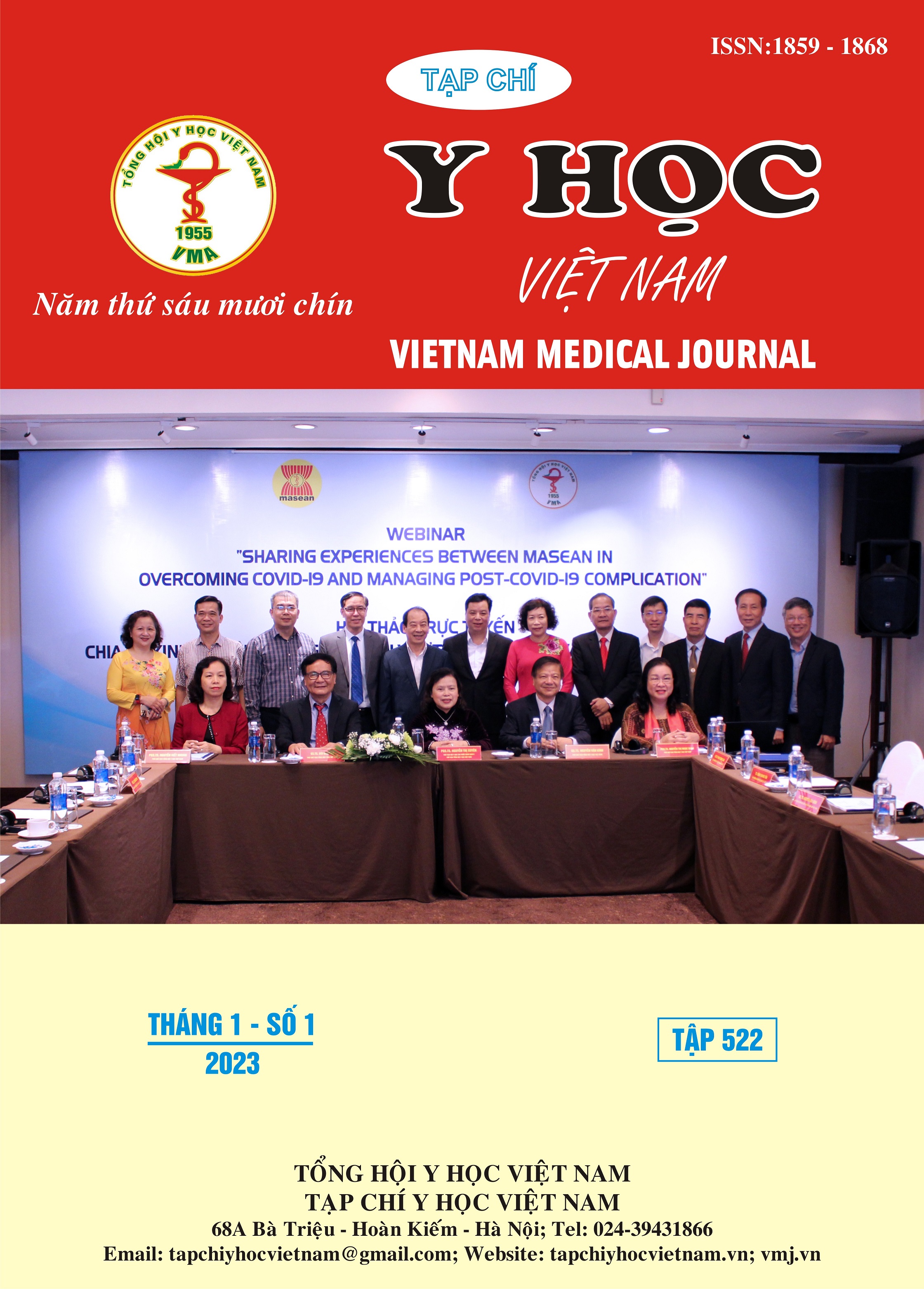CHARACTER OF CEREBROSPINAL FLUID RHINORRHOEA IN CHO RAY HOSPITAL FROM 2017 TO 2022
Main Article Content
Abstract
Background: Cerebrospinal fluid (CSF) rhinorrhoea is a condition that there is an open communication between the intracranial cerebrospinal fluid and the nasal cavity. CSF leaks are usually divided into non-traumatic and traumatic etiology. Traumatic leaks are more common and can be iatrogenic (secondary to anterior skull base and endoscopic sinus surgery). These patients are at risk of meningitis and other intracranial complication due to the spread of infection from the sinonasal cavity. The increased risk of life-threatening complications, despite advances in medical therapy, emphasizes the need for early diagnosis, accurate identification of the site of the leak and timely intervention to decrease morbidity. Objective: To describe clinical and paraclinical features of patients with cerebrospinal fluid rhinorrhoea. Methods: Research methodology is retrospective study and description with selected case by case. This study was carried out at Cho Ray Hospital from 2021 to 2022. Eighty-four patients diagnosed with cerebrospinal fluid rhinorrhoea were included in this study. Results: The most common cause of cerebrospinal fluid rhinorrhoea is head trauma (82,2%), other causes are iatrogenic injuries (13,1%) and idiopathic cerebrospinal fluid rhinorrhoea (4,8%). The majority of patients is men (83,3%). Common symptoms are unilateral or bilateral watery drainage, headache (42,9%), fever (19,0%). The rate of meningitis is 13,1%. Computed tomography is indicated in all patients, show the intracranial air (76,4%), bony skull base dehiscence (62,5%), air-fluid level in paranasal sinuses (40,3%), meningoencephalocele (2,8%). Conclusions: Cerebrospinal fluid rhinorrhoea can be traumatic or non-traumatic. There can be many symptoms beside nasal watery drainage. Cerebrospinal fluid rhinorrhoea can result in meningitis and this is a life-threatening conditon.
Article Details
Keywords
cerebrospinal fluid rhinorrhoea, cerebrospinal fluid (CSF), meningitis.
References
2. May M, Levine HL, Mester SJ, Schaitkin B. Complications of endoscopic sinus surgery: analysis of 2108 patients--incidence and prevention. The Laryngoscope. Sep 1994; 104(9):1080-3. doi:10.1288/00005537-199409000-00006
3. Ramakrishnan VR, Kingdom TT, Nayak JV, Hwang PH, Orlandi RR. Nationwide incidence of major complications in endoscopic sinus surgery. International forum of allergy & rhinology. Jan-Feb 2012;2(1):34-9. doi:10.1002/alr.20101
4. Karnezis TT, Baker AB, Soler ZM, et al. Factors impacting cerebrospinal fluid leak rates in endoscopic sellar surgery. International forum of allergy & rhinology. Nov 2016;6(11):1117-1125. doi:10.1002/alr.21783
5. P.W. Flint BHH, V.J. Lund, et al. Cerebrospinal Fluid Rhinorrhea. Cummings Otolaryngology: Head and Neck Surgery. 7th ed. Elsevier; 2020.
6. Daudia A, Biswas D, Jones NS. Risk of meningitis with cerebrospinal fluid rhinorrhea. The Annals of otology, rhinology, and laryngology. Dec 2007;116(12):902-5. doi:10.1177/000348940711601206
7. Loew F, Pertuiset B, Chaumier EE, Jaksche H. Traumatic, spontaneous and postoperative CSF rhinorrhea. Advances and technical standards in neurosurgery. 1984;11:169-207. doi:10.1007/978-3-7091-7015-1_6
8. Zlab MK, Moore GF, Daly DT, Yonkers AJ. Cerebrospinal fluid rhinorrhea: a review of the literature. Ear, nose, & throat journal. Jul 1992;71(7):314-7.
9. Banks CA, Palmer JN, Chiu AG, O'Malley BW, Jr., Woodworth BA, Kennedy DW. Endoscopic closure of CSF rhinorrhea: 193 cases over 21 years. Otolaryngology--head and neck surgery : official journal of American Academy of Otolaryngology-Head and Neck Surgery. Jun 2009; 140(6):826-33. doi:10.1016/ j.otohns.2008.12.060
10.Yilmazlar S, Arslan E, Kocaeli H, et al. Cerebrospinal fluid leakage complicating skull base fractures: analysis of 81 cases. Neurosurgical review. Jan 2006;29(1):64-71. doi:10.1007/s10143-005-0396-3
11.Schoentgen C, Henaux PL, Godey B, Jegoux F. Management of post-traumatic cerebrospinal fluid (CSF) leak of anterior skull base: 10 years experience. Acta oto-laryngologica. Sep 2013;133(9):944-50. doi:10.3109/00016489.2013.793821
12.Oakley GM, Alt JA, Schlosser RJ, Harvey RJ, Orlandi RR. Diagnosis of cerebrospinal fluid rhinorrhea: an evidence-based review with recommendations. International forum of allergy & rhinology. Jan 2016;6(1):8-16. doi:10.1002/alr.21637


